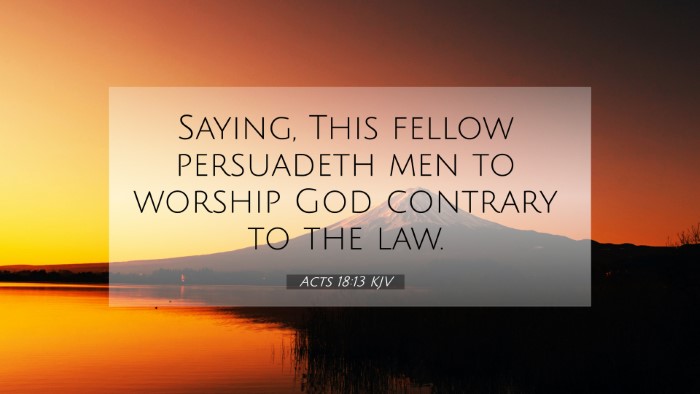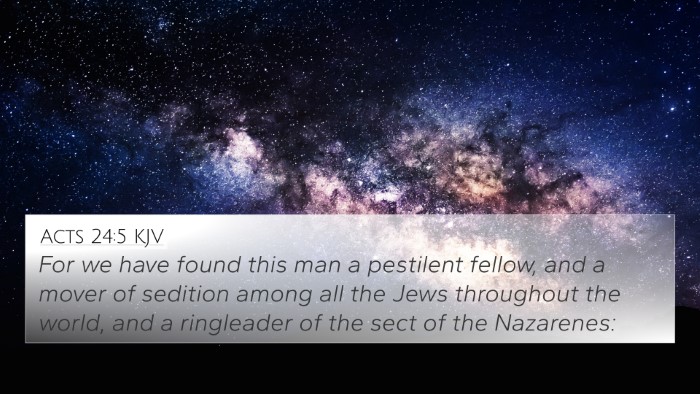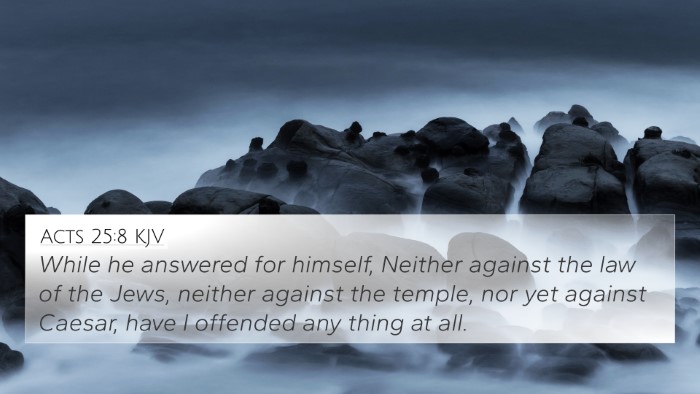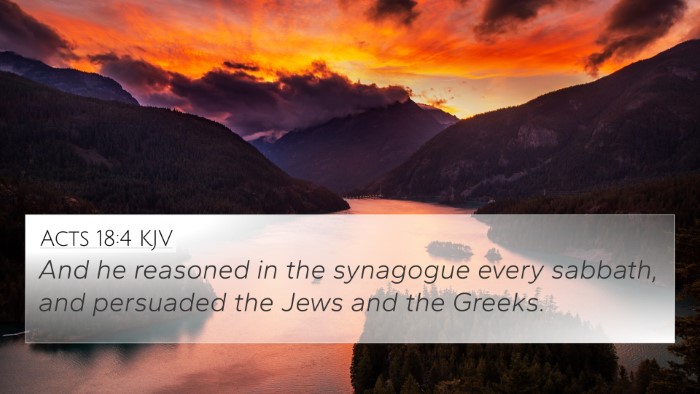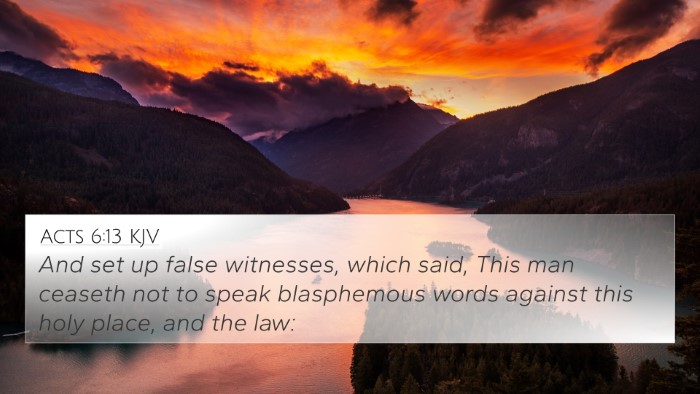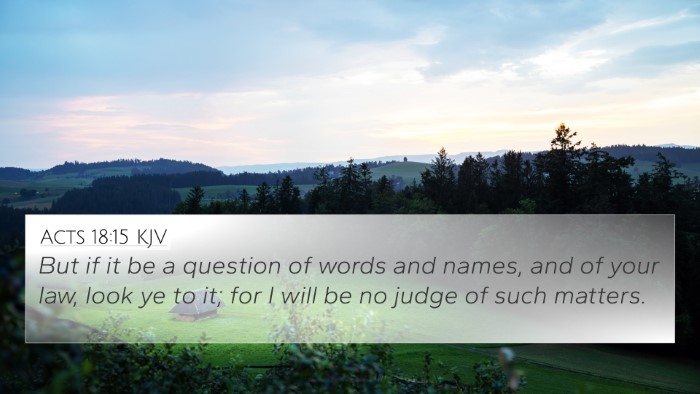Understanding Acts 18:13: A Comprehensive Analysis
Acts 18:13 presents a critical moment in the early Church’s mission as Paul faced opposition in Corinth. The verse states:
"Saying, This fellow persuadeth men to worship God contrary to the law."
This short statement carries significant weight in understanding the challenges faced by apostles and the nature of early Christian preaching. Below is a detailed exploration, combined interpretations from public domain commentaries, and considerable thematic cross-references.
Contextual Overview
The context of Acts 18 details the apostolic journey of Paul in Corinth, where he faced both acceptance and resistance. The mentioned accusation implies legal and religious dynamics present within the community. Understanding this provides clarity on the biblical narrative and the challenges of spreading the Gospel amid diverse beliefs.
Commentary Insights
Matthew Henry’s Commentary
Matthew Henry emphasizes that the opposition Paul faced was not uncommon among the first Christians. He notes that the accusation holds strategic significance, aiming to undermine Paul’s authority and the message of the Gospel. This highlights the persistent struggle between established religious norms and the transformative message of Christianity.
Albert Barnes’ Notes on the Bible
Barnes points out that the term “law” is crucial here, referring to Jewish law, and suggests that the accusation against Paul could be related to the perceived threat he posed to Jewish traditions. This highlights the tension between Judaism and the emerging Christian faith, with Paul often found in conflict with the Jewish leaders of the time.
Adam Clarke’s Commentary
Clarke elaborates on the political backdrop of the accusation, suggesting that such claims could lead to severe repercussions against Paul. He signifies the complexity of the socio-religious climate and the risks faced by early Christians who deviated from accepted teachings, emphasizing the need for wisdom and perseverance in their mission.
Thematic Cross-References
To gain a deeper understanding of Acts 18:13, we can look at various cross-references that illustrate the key themes presented in this verse:
- Acts 5:29: "We ought to obey God rather than men." - Emphasizes the priority of divine commands over human laws.
- Matthew 10:17-18: A warning that followers of Christ would face persecution and be brought before authorities.
- 1 Peter 2:12: Encouragement to maintain good conduct among non-believers despite accusations.
- Acts 17:5-7: Earlier instance of accusations against the disciples for causing trouble in the city - ties to the threats faced by Paul.
- Romans 13:1-2: Submission to governing authority, however addresses divine authority as supreme which plays into Paul's defense.
- Acts 16:20-21: Similar accusations were made against Paul and Silas for preaching customs not lawful for the Romans.
- John 15:20: Jesus’ forewarning of persecution for those who follow Him, reflecting the ongoing challenges.
- Galatians 1:10: Paul condemns the desire for approval by humans over God, resonating with the accusations he faces.
- 2 Corinthians 11:24-25: A declaration of the many sufferings Paul endured for the sake of the Gospel.
- Philippians 1:28: Encouragement to stand firm in the faith amidst opposition, directly applicable to Paul's situation.
Bible Verse Connections
Acts 18:13 serves as a bridge to understanding the broader narrative in the New Testament. Through connections between Bible verses, we notice that accusations against followers of Christ are systemic throughout the scriptures. This theme enriches the reader's study through:
- Linking Bible scriptures: Understanding how accusations lead to the growth of the early church.
- Comparative Bible verse analysis: Analyzing the legalistic traps laid for Paul and how he responded.
- Bible verses that relate to each other: Noticing the theme of resilience in the face of opposition in Paul's letters.
- Scriptural cross-referencing: Studying the dynamics between Jewish law and the emerging Christian faith.
Tools for Bible Cross-Referencing
For further exploration of Acts 18:13 and its thematic ties, consider using:
- Bible concordance: To find related verses efficiently.
- Bible cross-reference guide: Providing a structured method of studying interrelationships between verses.
- Cross-reference Bible study: Structured approaches to connecting themes across different books of the Bible.
- Bible reference resources: Online and print options available for deeper study.
Conclusion
Acts 18:13 remains a pivotal moment in understanding the early Church's struggles against the backdrop of societal laws and traditions. Through exploring insights from established commentaries and developing comprehensive thematic cross-references, readers can appreciate the depth of this verse within the larger narrative of the New Testament.
As you continue your studies, consider the connections between this verse and others to enhance your understanding of Biblical themes and teachings. This kind of scripture analysis opens the door to deeper insight and allows for a richer experience in your journey of faith.


